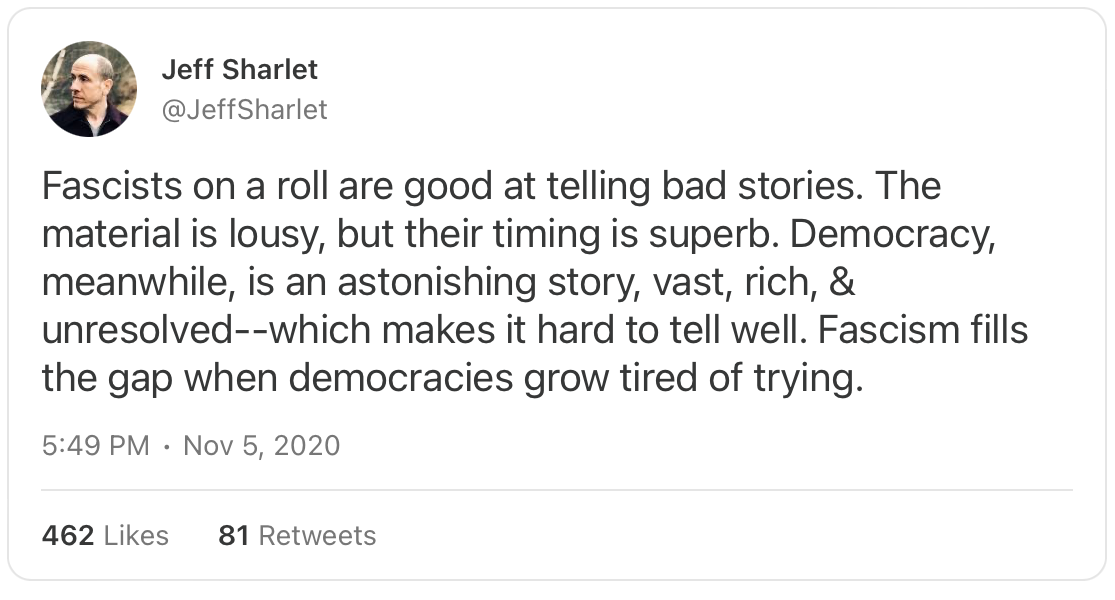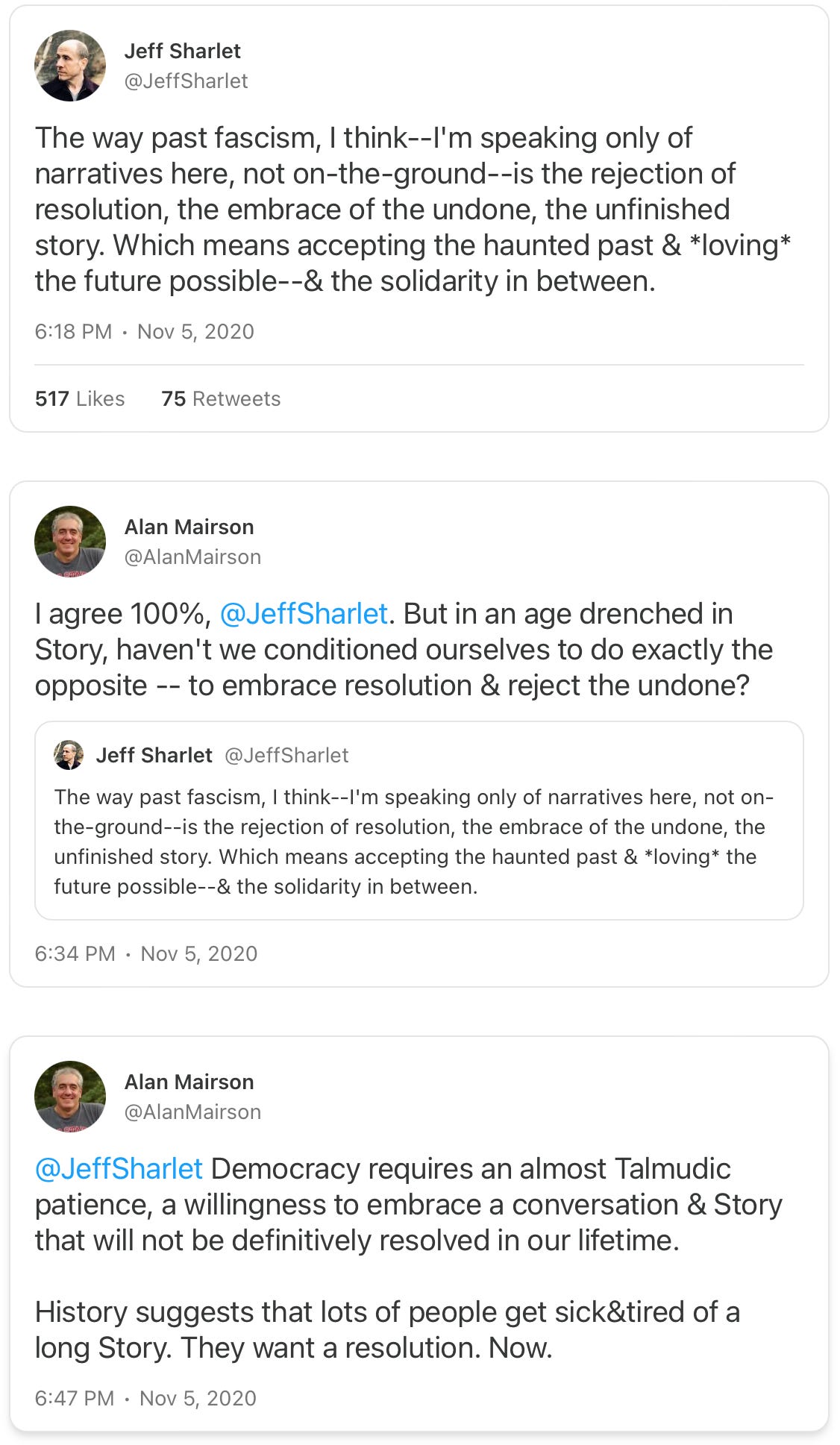The Perils of Narrative Dysfunction
Infecting the culture with "sorrow, depression, and impotent rage"
In [Charles] Baxter’s recent Burning Down the House: Essays on Fiction, he discusses the concept of “narrative dysfunction” — … “the process by which we lose track of the story of ourselves, the story that tells us who we are supposed to be and how we are supposed to act.” Baxter suggests that the Kennedy assassination, Richard Nixon’s Watergate-era disavowals of responsibility, and the endless procession of testimonies on Oprah and Montel Williams are all popular examples of dysfunctional narratives. Within these stories, people and events are blamed for doing someone (or some group) wrong. But since there is no one around to fully accept responsibility, there can be no true closure to these narratives; thus the story “spreads over the landscape like a stain,” infecting the culture with a mixture of sorrow, depression, and impotent rage.
— From “Too Many Stories: Are we getting paralyzed by narrative overload?” by Will Hermes, Utne Reader, September-October 1997 [which is almost 30 years ago; safe to say this overload has only become worse].
Much has been written in recent years about how democracies die.
But I’ve never seen this theory of narrative dysfunction explicitly offered as the root cause of our current cultural and political instability.
So I’m offering it here.
The victim narratives that now dominate our public life — racial victims, economic victims, LGBTQ victims, religious victims, etc. — never achieve “true closure.” Instead, the grievances multiply and divide: Liberals are decadent immoral relativists who hate God and are destroying the fabric of our nation! … Conservatives are racist Christo-Nazis who are destroying our democracy!
Or consider the Americans who deny the documented result of the 2020 election: Trump lost. The courts rejected all claims of alleged voting irregularities, yet an angry mob still stormed the U.S. Capitol demanding the loser be crowned the winner — and that Vice President Mike Pence be lynched. Four years later there’s still no closure, so the story “‘spreads over the landscape like a stain,’ infecting the culture with a mixture of sorrow, depression, and impotent rage.” Which is fertile ground for demagogues and fascists.
Filling the narrative void
(Jeff Sharlet is an American academic and journalist whose work has focused on religion and politics. His most recent book is The Undertow: Scenes from a Slow Civil War.)
What’s the fix?
Maybe a different narrative that hasn’t achieved closure yet, but still sees it up ahead, just peeking over the horizon. A Story that says: Sure, we’ve had some tough times. Like that slavery in Egypt debacle. Sheesh! Wasn’t that something! But our years of bondage are behind us now. And besides, our confrontation with Pharaoh [or King George, say, or the Confederacy] was a necessary step on the way to establishing our covenant at Sinai [the Declaration and the Constitution; the Emancipation Proclamation]. As for now, though, before any day of redemption, we are responsible for the lives we lead. The onus is on us. We must do the work while knowing that our efforts and those of our ancestors have not been in vain. “Remember there is meaning beyond absurdity. Know that every deed counts, that every word is power.” We shall one day reach the Promised Land [“a more perfect union”]. We shall overcome.
If you’ve got a better Story, I’m listening.






I like this and I think you are right. There is a toxic story being told about the American experiment and the West.
We have to build a new narrative that inspires hope while acknowledging our shortcomings .
I appreciated the reference to the utne reader. That brings back a lot of great memories